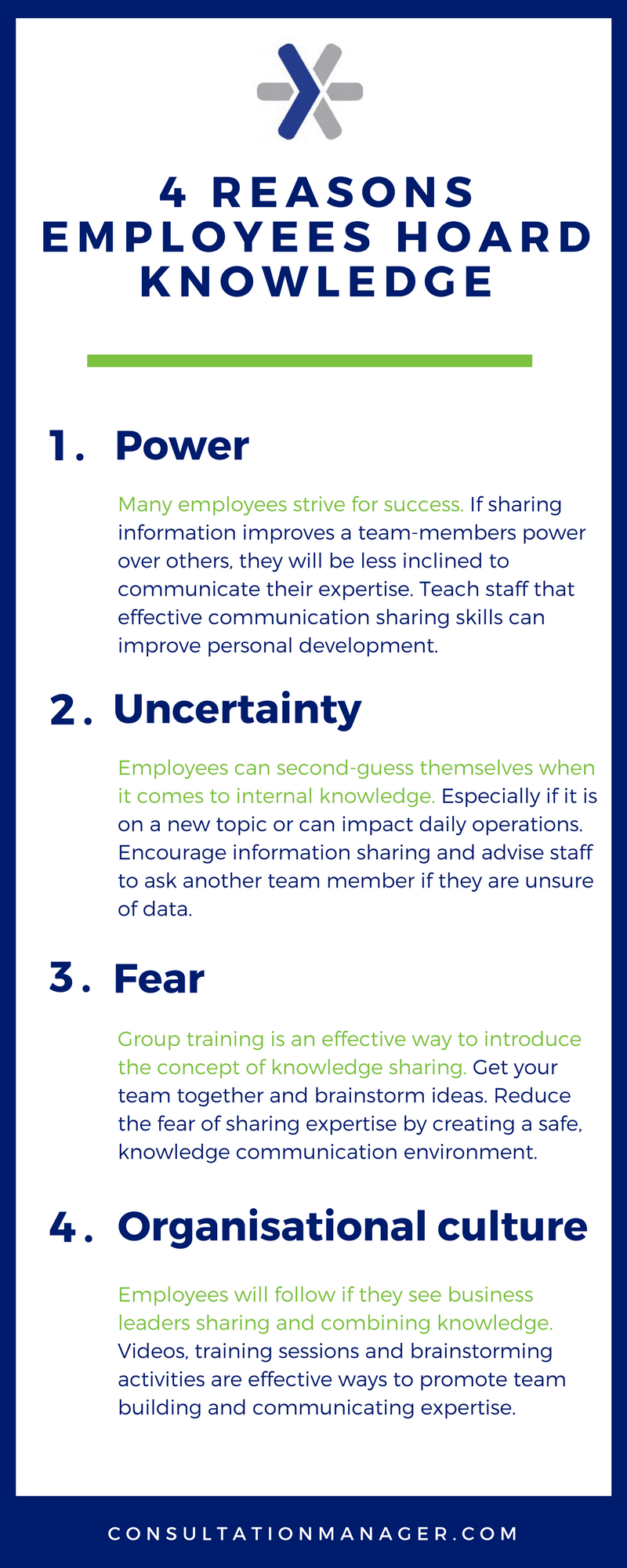Most organisations have two types of employees: People who embrace internal knowledge sharing and creating meaningful and transparent data or, members who keep business information to themselves.
Modern, effective businesses aim to reduce the number of employees who hoard knowledge. Data transparency contributes to increased productivity, improves data transparency and helps prioritise work. The goal for organisations is to teach employees the importance of communicating information. You can read a previous article about knowledge sharing across internal teams for more information.
Overcoming information-sharing barriers takes time. Often, an organisation will need to coach employees to communicate their expert insights. Here are some common reasons why employees are resistant to internal knowledge sharing and how to overcome them.
Power
Many employees strive for success. If sharing information improves a team member’s power over others, they will be less inclined to communicate their expertise. Teach staff that effective communication sharing skills can improve personal development.
Uncertainty
“Is the information I have correct?” Employees can second-guess themselves when it comes to internal knowledge. Especially if it is on a new topic and can impact daily operations. Encourage information sharing and advise staff to ask another team member if they are unsure of data.
Fear
Some people are introverts. Group training is an effective way to introduce the concept of knowledge sharing. You can get your team together and brainstorm ideas. Reduce the fear of sharing expertise by creating a safe, knowledge communication environment.
Organisational Culture
Employees will follow if they see business leaders sharing and combining knowledge. Videos, training sessions and brainstorming activities are effective ways to promote team building and communicating expertise.
At the end of the day, many employees desire a powerful position within the organisation. Staff may fear they will lose their influence or value if they communicate their expert knowledge to the team. This leads to the fear of downgrading their position. The role of a business is to strengthen the culture and teach staff the relationship between data transparency, work efficiency and conveying knowledge.
Internal Knowledge sharing across teams is an important business process
It is not uncommon for staff to hoard internal information and keep it to their advantage. However, this can negatively impact a business. Knowledge workers who are reluctant to share can make it difficult to train the team, and allow others to complete the same tasks.
Strive to create a positive work culture that promotes internal knowledge sharing.
Download our free Industry Information Sheets to learn more about how organisations like yours manage their stakeholder data.


Want more? Subscribe to our newsletter.

